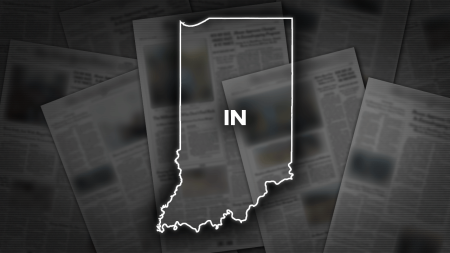State Representative Matt Maddock’s social media post about the Gonzaga men’s basketball team being mistaken for “illegal invaders” at the airport caused a stir online. This post was criticized by many, including State Senator Mallory McMorrow, who called it rude and dangerous. Maddock stood by his posts, claiming that there are hundreds of thousands of undocumented immigrants entering the country and Michigan. Despite initial support from some Republicans, including Michigan GOP chairman Pete Hoekstra, there was eventually some backtracking on the claims made by Maddock.
In response to the backlash, Maddock refused to acknowledge that the buses he saw were actually transporting basketball players. He defended his actions by stating that he was merely following up on a tip and asking questions about the situation, which he believed was happening in multiple locations and well-documented. Maddock’s controversial posts come amid a larger political climate in which issues of immigration and voter fraud are hotly debated topics. Maddock, a Republican representing parts of metro Detroit, had received an endorsement from former President Donald Trump in his reelection campaign.
Trump’s endorsement of Maddock highlighted the importance of investigating and documenting alleged voter fraud in the 2020 election. This aligns with Maddock’s own views on the issue, as he has been vocal about his concerns regarding the integrity of the election. The controversy surrounding Maddock’s posts and the subsequent backlash demonstrate the divisive nature of these political issues and the impact they can have on public discourse. While some Republicans initially supported Maddock’s claims, there was a shift in response as the situation unfolded, with some retracting their statements and distancing themselves from his remarks.
The incident involving Maddock and the Gonzaga basketball team sheds light on the power and consequences of social media in shaping public opinion and political discourse. The rapid spread of information and reactions on platforms like Twitter and Facebook can amplify controversies and hold public officials accountable for their statements. The episode also underscores the importance of fact-checking and responsible communication in a digital age where misinformation and inflammatory rhetoric can easily fuel division and mistrust. Maddock’s posts serve as a stark reminder of the need for civil and respectful dialogue, even in the face of deeply held political beliefs and grievances.
Ultimately, the fallout from Maddock’s posts highlights the challenges of navigating sensitive political issues and the need for elected officials to exercise caution and accountability in their public statements. The incident serves as a cautionary tale about the potential risks of jumping to conclusions and making inflammatory accusations without proper evidence or context. As the political landscape continues to evolve and polarize, it is crucial for leaders to prioritize transparency, honesty, and integrity in their communications, in order to foster trust and unity among their constituents. Only by engaging in respectful dialogue and seeking common ground can we move forward as a society and address the complex challenges facing our nation.















